Both Moonlight Reader and Portable Magic have added books. You can find the updated list here

Both Moonlight Reader and Portable Magic have added books. You can find the updated list here
Continued from prior post, here's the rest of my list of favorite historical fiction for Chris's crowdsourced historical fiction reading list.
 Clan of the Cave Bear
Clan of the Cave BearI can’t believe nobody has put this one on the list. Again, caveat emptor as it’s been over 30 years since I read it, but the first book in the series with explicit cave people sexy times has got to fit the category of Essential Reads. As I recall though, this first book was more about being different, about societal pressures to conform, and about learning to assert your true self.
 The Sweetness at the Bottom of the Pie
The Sweetness at the Bottom of the PieI cannot recommend the Flavia de Luce series enough. Set in the 1950’s, a feisty little girl uses her love of chemistry to become an amateur detective. When she’s not plotting to poison her sisters, of course. The audio on these, read by Jayne Entwistle, is a must. My original review here.
 Lonesome Dove
Lonesome DoveLarry McMurtry, man. Need I say more? However, at almost 1000 pages, I highly recommend you do this on audio. Lee Horsely (yes, really his name) does an authentic reading.
 True Grit
True GritNot a great work of literature, but Mattie is a character you’ve got to meet.
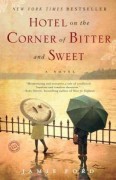 Hotel on the Corner of Bitter and Sweet
Hotel on the Corner of Bitter and SweetA Chinese-American man revisits his boyhood during WWII, when his Japanese-American neighbors and friends were sent to government internment camps. You’ll need a whole box of tissues for this one. My review here.
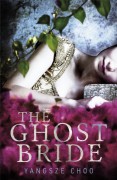 The Ghost Bride
The Ghost BrideThis one might be better classed under fantasy or folklore, since it’s not strictly realism, but it’s set in 1893 Malaysia and is a reflection of cultural beliefs and life of the time. It’s gorgeously written.
This is a late submission for Chris's crowdsourced historical fiction reading list. I’m limiting my list to those books I’ve really enjoyed, but did not find on the initial list that Chris published a couple of weeks ago. It’s odd how few reviews I’ve written for these books, but I remember them all distinctly. I usually mostly forget a book once I’ve read it.
 Cold Sassy Tree
Cold Sassy TreeCaveat emptor. This was one of the first audiobooks I read as an adult, which would have been about 20 years ago, and my tastes have changed considerably since then. But I recall it as a sweet, funny tale of small-town life in the South at the start of the 20th century, from the POV of a young teenager trying to puzzle out the secrets and behaviors of the adults around him. Audio version would be best, unless you enjoy puzzling out text written in the vernacular.
 A Tree Grows In Brooklyn
A Tree Grows In BrooklynAnother coming-of-age story set at the turn of the 20th century, but this one is about a little girl growing up in inner-city poverty. It is beautiful and rich and full of hope and harsh reality. I also seem to remember losing interest in it once Francie grows up, but at least the first half of the book is fantastic.

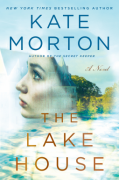

I absolutely adore Kate Morton’s books, and I see that The House at Riverton is already on the list. In addition to that one, these are her books that I most love. They all follow a similar construction, where a present day character is trying to unravel the secrets of the past, and the story follows both past and present threads until all (or most) is revealed. The settings and timeframes are all different, and I’ve enjoyed each of them.
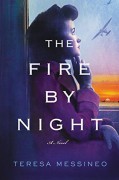 The Fire by Night
The Fire by NightI five-starred this one because it grabbed me, pulled me in, made me cry. And also because I connected with it so powerfully from my experience as a nurse, although of course I never did so in war. This is the story of two women who served as military nurses during WWII. It’s about love and friendship and duty and sacrifice.
We have reached 200, though the actual number of books is greater than that because I didn't list each and every book for each and every series. If anyone has anything they want to add, you have until this coming Friday.
You can find the list here.
In the Notes section, I put whether or not the book was part of a series, and if the whole series was on the list, how many books in the series. If any of the numbers are wrong let me know. I also noted if the books were now usually published in one book.
I am not sure of the exact number of Courtney Milan books because (1) she is still published and (2) if the book is in a ebook set, the set counts as one, so the number gets very confusing.
Thanks to everyone who sent in lists.
OK, so I did get to another full list after all. Here goes, without any further ado:
 Virginia Woolf: Orlando
Virginia Woolf: Orlando
I'm happy I'm getting another shot for this book alone -- could have kicked myself for leaving it off my first list. I'm not a big fan of either time travel or main character sex changes, but here they both work for me, and you can't help but root for the MC. (Well, of course not -- Woolf was in love with her, after all.)


Margaret Atwood: The Penelopiad / Alias Grace
I'd love Atwood for these two books (and The Blind Assassin, which is sort of semi-historical fiction), even if she hadn't written The Handmaid's Tale or any other book. The Penelopiad is, strictly speaking, retold myth rather than historical fiction, but what the heck, I'm going to lump it in here anyway. (Do yourselves a favor and get the audio performed -- "narrated" is definitely an understatement -- by Laural Merlington.)
 Barry Unsworth: Morality Play
Barry Unsworth: Morality Play
If I'd read more books by Unsworth, I'd probably be listing them all here, but as it is, I'm going to go with the one book I actually have read. Set among a group of traveling medieval actors; short, to the point -- and the kind of tale that stays with you long after you've finished it.
 Michael Ondaatje: The English Patient
Michael Ondaatje: The English Patient
The movie is great, but the book is even better. It will also make you want to read up on Herodotus.


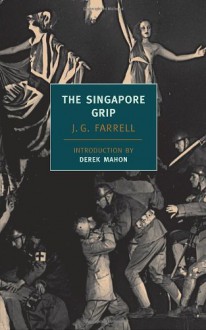
J.G. Farrell: Empire Trilogy
Farrell only published six books during his lifetime; two of them (Troubles and The Siege of Krishnapur: books 1 and 2 of the so-called Empire Trilogy) clinched a Booker Prize, the third installment of this "trilogy" -- which actually isn't one --, The Singapore Grip, is considered one of the top 10 essential books on Singapore. Taken together, the three novels shine a spotlight on three different moments in the eventual breakup of the British Empire: Ireland after WWI, the Indian Rebellion, and the Japanese occupation of Southeast Asia.
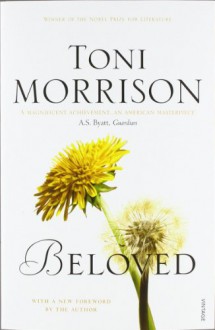 Toni Morrison: Beloved
Toni Morrison: Beloved
The classic novel on slavery and the Civil War and its aftermath. 'Nuff said.
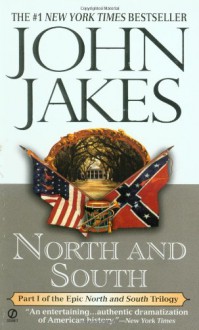
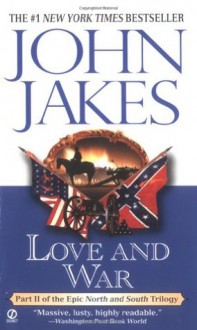

John Jakes: North & South trilogy
Riveting enough to have helped me, decades ago, to get over the end of a relationship. I swallowed the whole trilogy in a matter of days.
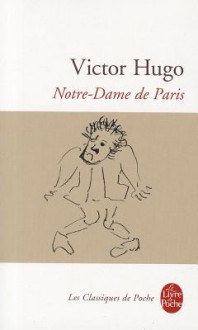 Victor Hugo: Notre Dame de Paris (The Hunchback of Notre Dame)
Victor Hugo: Notre Dame de Paris (The Hunchback of Notre Dame)
Gargoyles -- of both flesh and stone. Notably, Hugo wrote this as a piece of advocacy for the restoration of the cathedral.
 Alexandre Dumas: La Reine Margot
Alexandre Dumas: La Reine Margot
The classic novelization of the St. Bartholomew's Day massacre and its aftermath ... even if it's not entirely true to fact (or historical character, especially concerning Catherine de Médici).
 C.S. Forester: Horatio Hornblower series
C.S. Forester: Horatio Hornblower series
A series I love almost as much as Patrick O'Brian's Aubrey / Maturin novels.
 Bernard Cornwell: Sharpe series
Bernard Cornwell: Sharpe series
"One if by land, two if by sea" -- yes, I know, wrong war, wrong continent and wrong symbolism, but it kind of also works as a shorthand for my favorite HistFic series on the Napoleonic wars (Aubrey / Maturin, Hornblower, and Sharpe). Though Sean Bean just might have had something to do with the latter -- Cornwell himself at times has a very, um, direct way of getting across that war is anything but glorious.

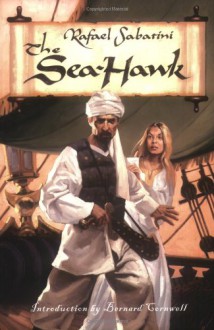

Rafael Sabatini: Scaramouche (and Captain Blood, and The Sea Hawk)
Errol Flynn probably only would have had half a career without Sabatini's Captain Blood and The Sea Hawk (both of which I first read as a teenager, after having been turned onto swashbucklers by -- who else -- Dumas's Muskeeers), but the one novel (and character) I have a particular fondness for is Scaramouche, he of the gift of laughter and the sense that the world was mad. (Also, hattip to Stewart Granger, who portrayed him in the movie adaptation.)
 Rose Tremain: Restoration
Rose Tremain: Restoration
One of the rare cases where I actually prefer the movie adaptation; chiefly because I like the movie's Merrivel better than the character as written by Tremain. Either way, though, a glorious tribute to the England of the late 17th century.
![]()
![]()
![]()
![]()
![]()
![]()
![]()
![]()
![]()
Jean Plaidy
Another one of my earliest historical fiction loves; particularly, her several series focusing on the Plantagenet, Tudor and Stuart queens. They may not all have aged tremendously well, but they're backed up by vastly more solid historical research than the books of many a more recent bestseller writer (looking at you, Philippa Gregory), and at least as importantly, Plaidy actually empathized with her characters and cared for them, whereas others -- cough, Gregory, cough -- seem more interested in exploiting long-disputed historical clichés for the sake of sensation and a juicy tale.
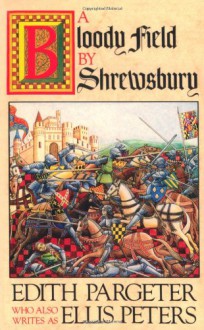 Edith Pargeter: A Bloody Field by Shrewsbury
Edith Pargeter: A Bloody Field by Shrewsbury
The story of the Hotspur rebellion, told from the POV of the three Henrys (IV (aka Bolinbgroke), V (aka Prince Hal), and Hotspur), as well as a fictional Shrewsbury lass. If you've only come across this story via Shakespeare's plays, you certainly won't find the same characters here; particularly not the same Harry Hotspur, and personally I like Pargeter's Hotspur a good deal better; but then, of course I'm meant to. -- And one day I'll probably also read her Brothers of Gwynedd quartet (her take on the story underlying Sharon Kay Penman's Welsh Princes trilogy); if I already had, I totally wouldn't rule out that I'd want to add those books to this list as well. N.B.: For those who don't know, Edith Pargeter was the real name of Ellis Peters, the creator of the Chronicles of Brother Cadfael (also set in Shrewsbury, though a few centuries earlier than this book). Pargeter / Peters incidentally also published a gorgeously illustrated nonfiction book on Shropshire and the Welsh borderland, Strongholds and Sanctuaries., which I found extremely valuable as a guide in preparing a trip to the area two years ago.
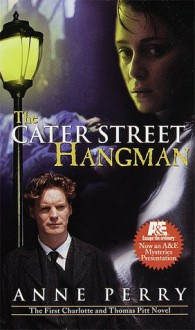
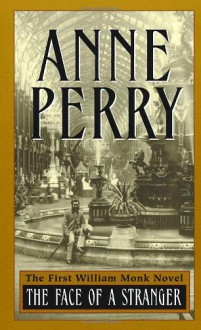

Anne Perry
Of her Charlotte and Thomas Pitt series, the first book -- The Cater Street Hangman -- still remains one of my favorites. Both there and in her other series -- William Monk -- the main characters sometimes exhibit annoyingly modern attitudes, which are didactically set against the traditional / backward-looking / conservative / narrowminded attitudes of their antagonists. This aside I can't fault her research, however, and her books have, at this point, become enough of a comfort reading go-to for them to warrant inclusion here. This is particularly true for her Christmas novellas, in each of which she takes a supporting character from one of her two main series and makes him / her the protagonist of a story that is tangentially related to the main series (but not necessarily incorporated in it). In fact, if I had to pick one favorite among these three "branches" of her output (Pitt, Monk, and Christmas novellas), I'd probably go for the Christmas novellas every time; never mind that Perry can't always resist preaching the spirit of the season.
 James Ellroy: L.A. Confidential
James Ellroy: L.A. Confidential
Corruption and police brutality in 1950s Lalaland: The movie has great visuals, but Ellroy's prose has a clipped, sharp-edged style that fits the subject matter to a T. (HistFict definition note: Ellroy was born in 1948, so technically this is only borderline historical fiction -- I'd still argue that his knowlege of early 1950s L.A. / Hollywood society and policing is not so much a matter of personal, first-hand insight but, rather, historical research performed at the time of writing this book, i.e. in his adulthood.)
 Susanna Clarke: Jonathan Strange and Mr. Norell
Susanna Clarke: Jonathan Strange and Mr. Norell
This will never be one of my top ten (or so) favorite novels under any definition; chiefly because it drags interminably in the middle and is a good 200 pages (or more) too long. But I love the concept, and where it works -- particularly at the beginning -- it works incredibly well. It's also one of the few "alternative history" books that have held my attention long enough for me to actually finish it, even despite its sagging dreadfully in the middle.
 Mary Stewart - Merlin trilogy
Mary Stewart - Merlin trilogy
Full disclosure: I still have to complete book 3. Even so, I'll say that as an alternative take on the Arthur saga this is working surprisingly well for me; particularly the first book -- The Crystal Cave --, the story of Merlin's youth and a "prequel" of sorts to the better-known subject matter dealing with King Arthur directly.
 T.H. White: The Sword in the Stone
T.H. White: The Sword in the Stone
Short of Thomas Malory (and Tennyson's Idylls of the King), the classic version of the Arthurian saga. I've never had much use for the Lancelot and Guinevere romance; consequently, the later parts of White's Once and Future King are decidedly less my kind of thing -- but the first book is simply glorious.


Roger Lancelyn Green: King Arthur / Robin Hood
And, finally ... if you haven't first met King Arthur and Robin Hood (and plenty of other mythical kings and heroes, but let's just stick with these two, shall we?) courtesy of T.H. White or Howard Pyle, you've most likely met them in the books of Roger Lancelyn Green. Timeless tales that can't help but draw you in.